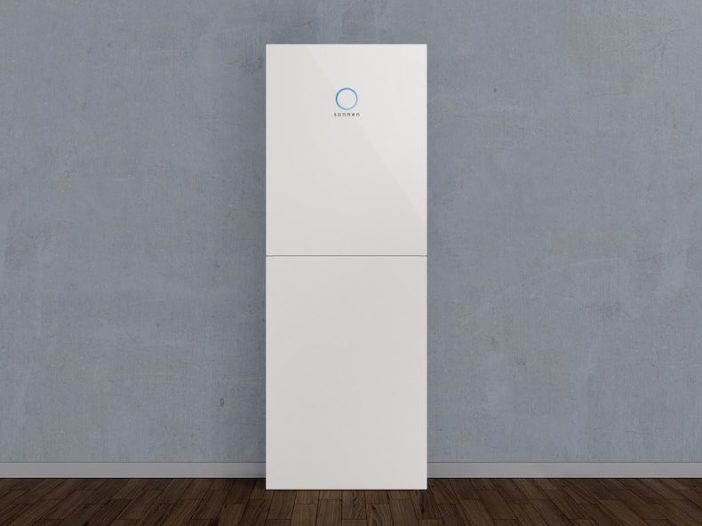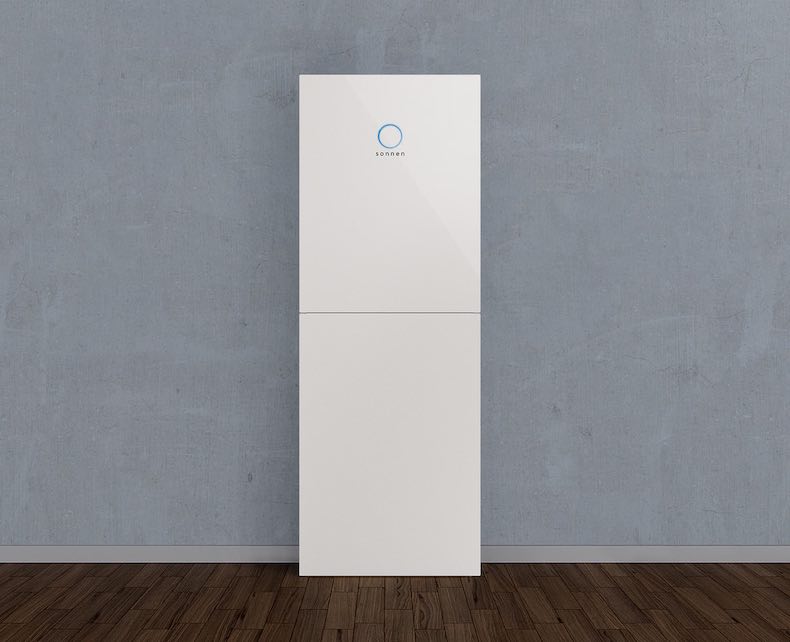
German energy storage giant Sonnen has been tapped to provide the battery storage for three solar homes being built in the Melbourne suburb of Brunswick, as part of a cutting edge approach to housing sustainability and affordability.
The project, while relatively small in scale for both Sonnen and the collective of companies that is developing the three townhouses, is eye-catching in its bid to take suburban housing all-but off-grid via solar, storage and leading edge energy efficiency.
That said, for design and development company Hip v. Hype, keeping residential solar and storage connected to the grid as a vital – if not yet fully appreciated – part of the future energy ecosystem, is also a highly valued part of the plan.
According to Liam Wallis, who founded the Victoria and NSW-based start-up, this is one of the key reasons the company chose to go with Sonnen for battery storage.
“Sonnen understand that there’s more power in being connected,” Wallis told One Step in an interview on Wednesday.
“(In Australia) we’re just moving into a space where the idea of the energy is changing rapidly. We see battery storage as (becoming) less of a bolt on and more of part of an integrated solution.”
Integrated solutions appear to be at the core of what Hip v Hype is all about. In this case, the group has taken one block of suburban land, and converted it from one dwelling into three, with the chief goal of those new homes being affordable to buy – and to live in.
To this end, Wallis and the company he founded four-and-a-half years ago is using the Davison Collaborative project in Brunswick as a sort of prototype model – a co-development that seeks to deal with housing affordability, pulling resources together to do more with less.
As the company put is: “The model allows for collaborators to come together and utilise the multi-disciplinary expertise of HIP V. HYPE to create better quality, more sustainable and more financially accessible townhouse style homes in inner urban locations where property prices are increasingly forcing people out of the market.”
In terms of liveability, the townhouses, designed by Archier, aim to be fossil fuel free – so no gas at all – and between 80-100 per cent powered by a 4.5kW solar system and 7.5kWh sonnenBatterie each.

On top of this, the three homes will have an air-tight envelope coupled with energy recovery ventilation, and an integrated electric heat pump boiler for hydronic heating, cooling and domestic hot water.
All told, each new dwelling will wind up having an 8 star average NatHERS (energy efficiency) rating, and are expected to be net energy positive – and zero emissions.
And each of their single-car garages will be fitted out for electric vehicle charging, and will house the sonnenBatterie – a legacy of the current (and controversial) Standards Australia energy storage installation rules, that most mainstream battery makers, including sonnen, are still working to have changed.
“The townhouses have little garages tucked under the stairs,” Wallis said, when asked where the sonnenBatteries were being installed in such compact new homes.
“It seems a shame to have such a beautifully designed product stuck in a garage,” he added. “The whole industry is hypersensitive to fire risk.”
For sonnen – which now has a manufacturing facility in Adelaide, and continues to fight “quite passionately” for a better understanding of battery chemistries and safety in homes – the Davison Collaborative project is small, but important.
“We’re starting to work together on some other projects now,” said sonnen’s national business development manager for Australia, Suji Leroux.
“We’re really excited about working with (Hip v Hype), we find ourselves quite well aligned.
“They have innovated this development model … which is community focused, and trying to create affordability for homeowners.”
Leroux says these kind of new-build developments are key growth areas for battery makers in Australia, with the biggest example for sonnen currently also in Victoria – the Aquarevo project being developed by Villawood and Southeast Water.
In that development, 400-500 homes will all have solar, and 260 of them will also have a sonnen battery.
“I believe the mandating of solar (on all new-build homes) will come soon – in a five-year timeframe,” Leroux told One Step.
“When you think about it, air-conditioning used to be an upgrade option in a new home, now you can’t build a new home without it.
“After solar, batteries will follow very soon. As more and more solar goes out, storage just has to come into the picture,” she said.

Sophie is editor of One Step Off The Grid and deputy editor of its sister site, Renew Economy. Sophie has been writing about clean energy for more than a decade.



